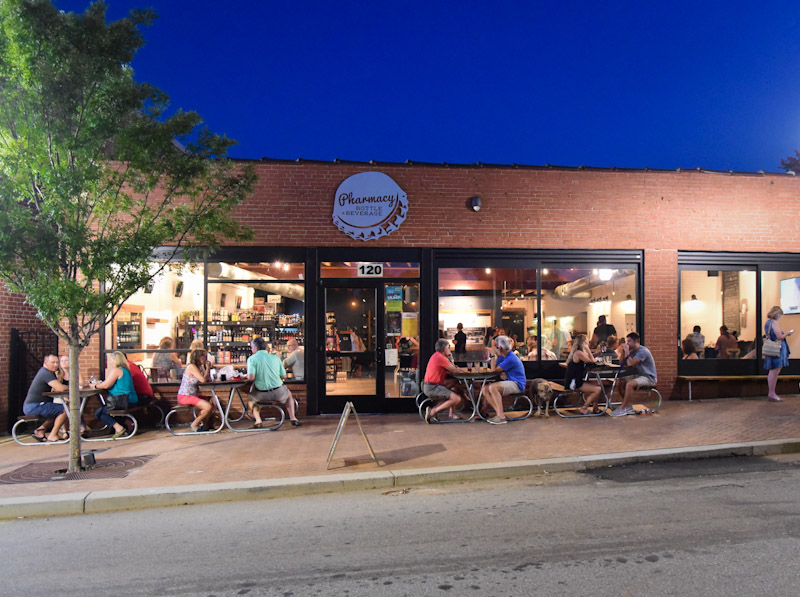Cary Ranks in Top Ten for Quality of Life Nationwide
Cary, NC – Unlike data such as unemployment or home prices, quality of life is something difficult to nail down, though it is just as important to towns and cities. But a new study attempts to rank Cary’s quality of life and puts the town as one of the country’s best.
Sixth-Best Nationwide
In a new study from NerdWallet, the economic information research site looked at quality of life across the country, trying to find the towns and cities with the best quality of life. According to the study’s authors, Cary ranks sixth nationwide for quality of life, right between Boise, Idaho and Eugene, Oregon.
The study looked at six factors to determine quality of life:
- Mean weekly hours worked
- Mean travel time to work
- Median annual rent as percentage of median income
- Percentage of population with health insurance coverage
- Percentage of families and people with income in the last 12 months below the poverty level
- Unemployment rate
Only towns and cities with a population of more than 150,000 though across the study, relative low-population municipalities seemed to rank near the top.
To Cary’s credit, factors related to its low poverty and unemployment rate helped propel it near the top of the pack. Only Fremont, California had a lower poverty rate in the study (1.3 percent compared to Cary’s 3 percent).
Another factor that helped Cary was the median gross rent as a percentage of monthly income. In other words, what is the average ratio of rent payment to how much one makes in a month? Cary had the second-lowest with 25.4 percent, only behind Frisco, Texas at 23.7 percent.
Factors that Negatively Impact Quality
Cary did not get high-marks across the board, however. The study also looked at the mean length of the workweek for each municipality. Cary had a workweek of 40.3 hours, which put it near the bottom of the pack.
However, the impact of the workweek length on quality of life is unclear. Several of the top-ranked towns and cities also had long average workweeks in hours while some of the lowest-ranked municipalities ranked well for workweek length. For some context, Madison, Wisconsin ranked #1 in the study and its mean workweek length was 37 hours.
The study also suggests shorter commute times may mitigate the impacts of relatively long workweeks. Cary’s average commute time was 23.6 minutes according to the study.
Story by staff reports. Photos by Hal Goodtree.






Two things are underway to improve that. Next year (2018), NCDOT and Amtrak will begin offering two additional round trips between Raleigh and Charlotte. This will bring the total to five round trips. These trains, the Piedmont and Carolinian, provide stops in Raleigh, Cary, Durham, and other cities further west.
Secondly, the Wake County Transit Plan calls for the introduction of commuter rail service between Garner and Durham. Commuter rail uses similar equipment to Amtrak, but has more frequent stops and generally runs every 30 minutes during rush hours. This service will include stops in Garner; Raleigh; NC State; Cary; Morrisville; RTP; and Durham. This service is being funded by the half-cent sales tax we voted on last November. Implementation of this service will require further improvements to the rail corridor and is probably close to 10 years before it can be fully implemented.
The transit plan also calls for a tripling in bus service, with more local and express routes.
More details on the plan can be found at http://www.waketransit.com/.
Thanks, Robert! You always have the legit info.
Yes!
It’s a shame that Cary has a train station but no trains that run during rush hour for folks that work in downtown Raleigh or downtown Durham. That would help a lot with commute times I think.
Thumbs up!
That’s why I won’t work downtown; jobs are there but I can telecommute to Charlotte.
How ’bout a light rail!
No light rail (like in Charlotte) is proposed for Wake County. At the time our plan was being developed, the clear sentiment was to spend more money on expanding the bus system, rather than building a light rail. The plan does include commuter rail (see my post below.
Note that light rail is being developed to connect Chapel Hill to Durham. This project is currently in final design. Once that’s complete, we’ll submit it to the Federal Transit Agency to get what’s known as a Full Funding Grant Agreement. Once that’s received, we can move forward with construction, scheduled for 2020. For more information, including a cool fly-through of the alignment, see http://ourtransitfuture.com/projects/lrt/.